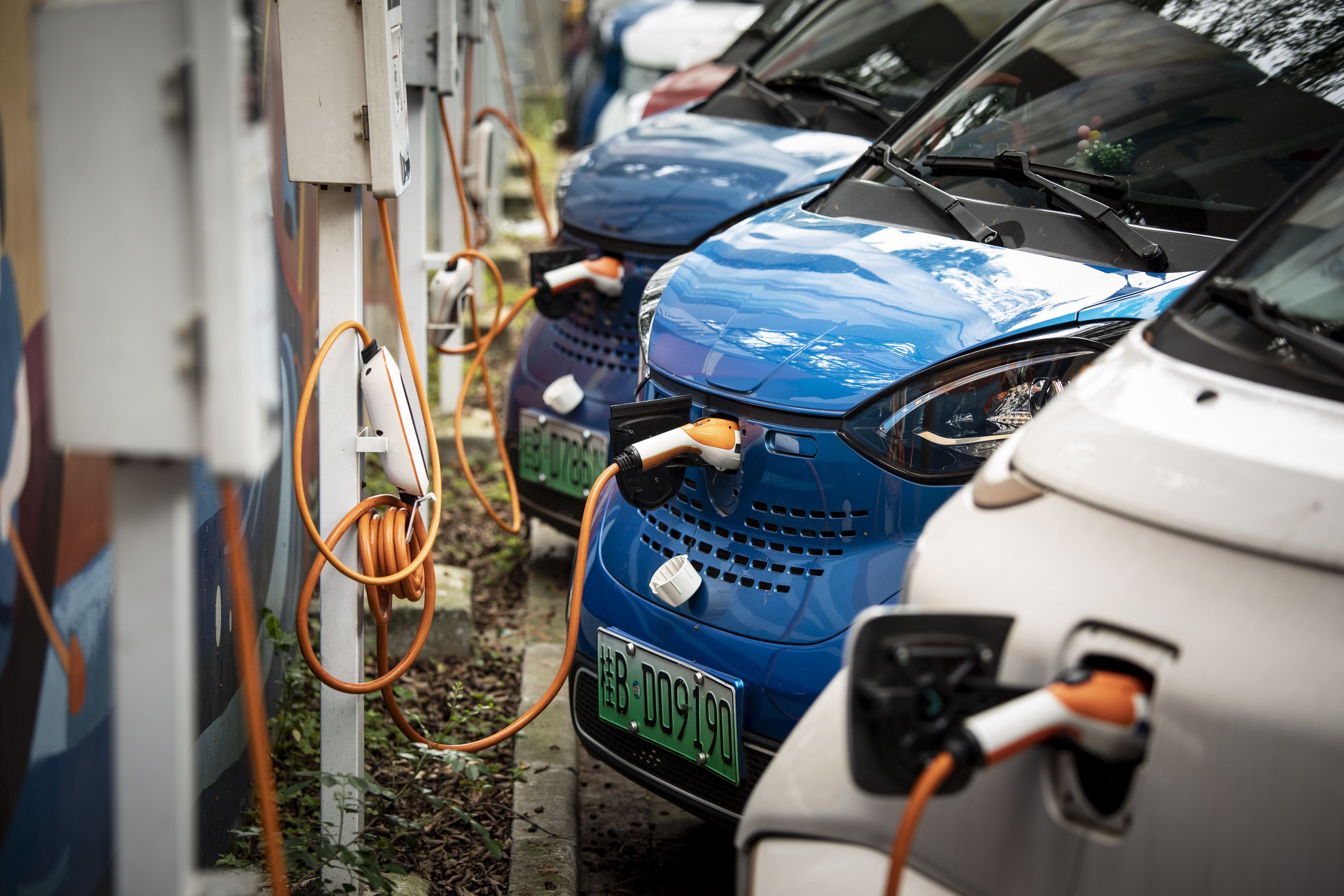Naamsa | the Automotive Business Council and car manufacturers have welcomed President Cyril Ramaphosa’s comments on positioning South Africa as a leading electrical vehicle manufacturing hub.
On Thursday, Ramaphosa addressed the SA Auto Week in Cape Town, where he acknowledged the sector’s contribution to the economy and the challenges it faced.
The President said the government plans to incentivise new energy vehicle production in South Africa to make them more affordable, but offered no details on time frames or how that would be achieved or funded, except to say: “Consideration must be given to incentives for manufacturers as well as tax rebates or subsidies for consumers to accelerate the uptake of electric vehicles. This is not just about creating a greener future but also about ensuring South Africa remains competitive in the global market.”
Read more: Motoring sector finally gets 150% rebate on investment in new electric vehicles, but only in 2026
Ramaphosa added that while the journey to net zero poses a challenge for the automotive industry, there is also immense opportunity. “The local automotive sector needs to position itself to take advantage of the demand for electric vehicles, new-energy vehicles and sustainable fuels.
Read more: Better late than never: DTIC finally releases electric vehicle white paper
“The transition to cleaner, more sustainable practices in the automotive industry is a priority for our government… We are committed to working hand-in-hand with the private sector to promote the production of new-energy vehicles and the development of the necessary infrastructure to support them.”
South Africa currently taxes imported electric vehicles (EVs) at 25%, which is a turn-off for many consumers, while internal combustion engines attract import duties of 18%.
More charging stations required
Charging infrastructure is another problem: not only are there not enough chargers, but fast-charging stations, especially along major routes, are inadequate. The country needs to invest in charging stations, to build confidence in the EV market.
Zero Carbon Charge plans to set up more than 120 fast-charging off-grid stations for cars as well as 120 electric truck charging stations on highways across the country, although the project will take years to complete. It projects there will be about 120,000 EVs on South Africa’s roads by 2027 and 360,000 by 2030.
Last week the company announced it would be investing R11.4-billion in the roll-out of EV charging stations in the Eastern Cape.
Ramaphosa also spoke about the beneficiation of more critical minerals, which he raised during the opening of Parliament earlier this year, noting that the Department of Trade, Industry and Competition, National Treasury and the Department of Mineral and Petroleum Resources were in talks about implementing the Electric Vehicle White Paper.
Read more: After the Bell: South Africa’s late to the electric vehicle party and better get moving
“This work includes the beneficiation of our critical minerals for the production of new-energy vehicles and their associated value chains. It also includes the production of batteries for battery electric vehicles and the development of value chains in the green hydrogen fuel cell market.”
On Friday, the Naamsa board welcomed Ramaphosa’s comments, saying he highlighted several key points, including the rise in business confidence and the increased interest in investment.
“This signals a positive outlook for the automotive sector, and Naamsa looks forward to harnessing this momentum to attract further investment and enhance the industry’s global standing.”
Naamsa said it was “fully aligned” with the need to embrace new-energy vehicles (NEVs), sustainable fuel technologies, and positioning South Africa as a leader in this space.
“The automotive industry’s role in promoting a green, sustainable future is paramount. We support the government’s initiatives to foster the production of electric and hybrid vehicles and the necessary infrastructure development to ensure South Africa remains competitive in the global market. The inclusion of critical mineral beneficiation for NEV production, including batteries and green hydrogen fuel cells, positions us to capitalise on emerging industrialisation opportunities,” it said.
However, it bemoaned South Africa’s slow progress in adopting hydrogen and NEVs, calling for accelerated investment and policy support to unlock the potential of hydrogen as a sustainable energy source for the sector, underpinned by the development of refuelling infrastructure. It also said regulatory hurdles, infrastructure development and financial support for small enterprises continued to hamper progress in the sector.
Naamsa president Billy Tom said growing confidence in South Africa, among both local and international investors, is a positive signal for the automotive sector. “We look forward to leveraging this momentum to attract a fair investment in our industry’s global standing.
“The President rightly acknowledged the automotive sector as a significant contributor to South Africa’s GDP and exports. This sector employs over half a million people across the value chain and the industry’s continued success in key markets, such as the European Union Africa, reflects our commitment to innovation… We are committed to positioning South Africa as a leader.”
South Africa’s motoring industry, which has seen declining sales since August 2023, is struggling with increased imports and the need to maintain export markets, particularly to Europe. DM





